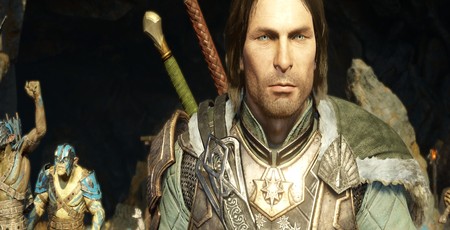
Price: £44.99
Developer: Monolith Productions
Publisher: Warner Bros.
Platform(s): PC, PS4, Xbox One,
Version Reviewed: PC
When Shadow of War finally gets to the point, it's great. The sequel to the surprisingly innovative Shadow of Mordor builds upon its now famous (or should that be infamous) Nemesis system in ways that edge closer to the unrestricted emergent play that open-world games so often promise and nearly always fail to deliver. When you're creating your own orc assassination missions, dealing with random revenge attacks, or besieging the Uruk fortresses that are the central new feature of the sequel, Shadow of War is as sleek and seductive as the One Ring itself.
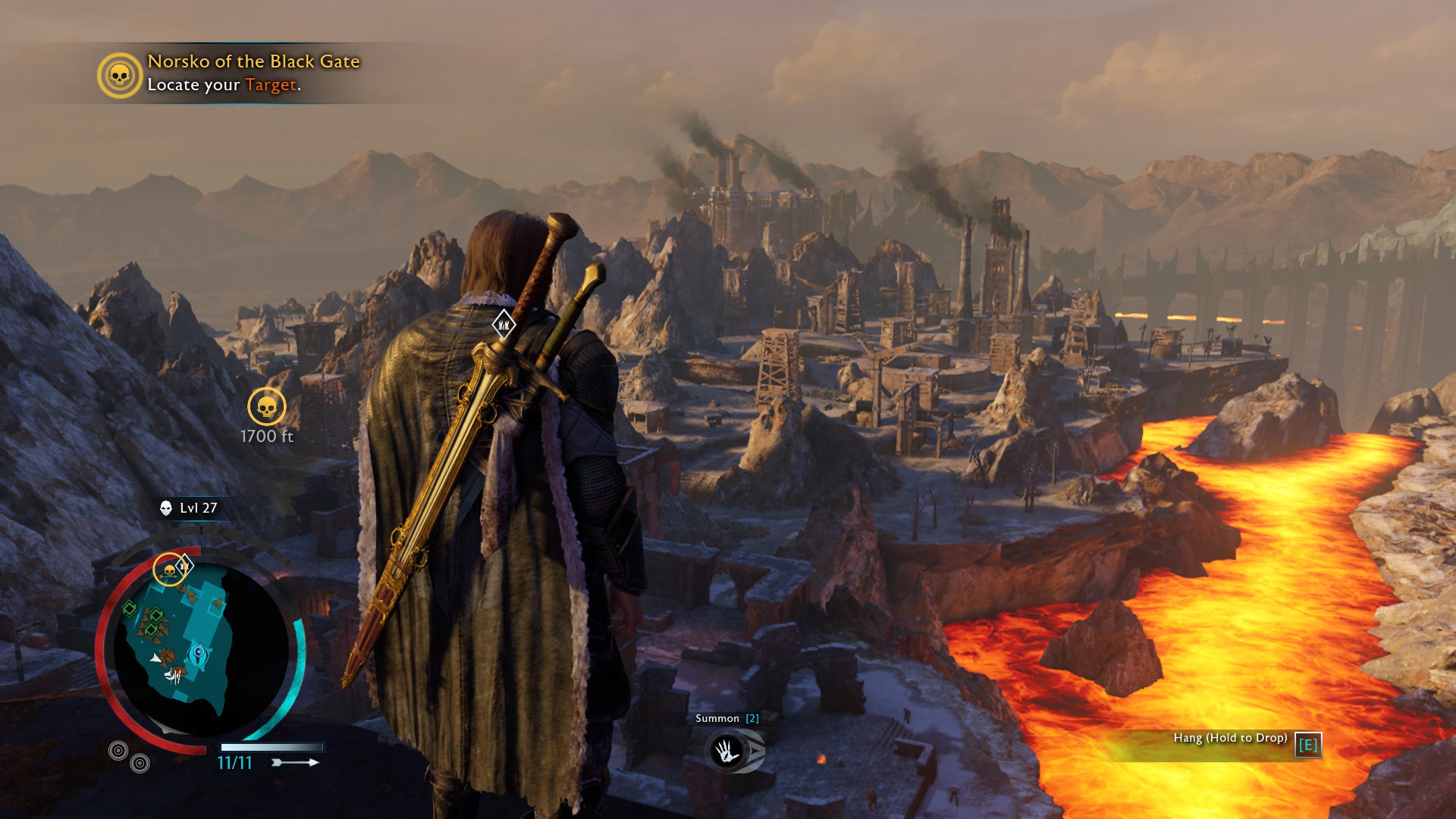
But holy flipping Nazgûl, Shadow of War takes its time in getting there. It takes about ten hours for Shadow of War to properly open up, during which time you mostly run around completing rote “follow the NPC” quests while the achingly dull story drones in your ear like a bee at a Friday afternoon office meeting about honey production rates. All the while the Nemesis system sits awkwardly at the sidelines, shuffling its feet impatiently as it waits to get in on the action. It's a weird game, one that learns all the good lessons from Shadow of Mordor but also makes many of the same mistakes.
After spending the previous game killing every Orc in Mordor on their personal revenge quest, the ranger Talion and the elf-spirit Celebrimbor decide to take the fight to Sauron himself. This they do by, er, forging another One Ring. The One Ring 2: Ring Harder. It's a bizarre start to the story, and from there it only gets stranger. After forging the second ring to rule them all, the duo immediately lose it to Shelob the Spider. 'How do you lose a ring to a spider?', you might ask. Well, it's easy if they're no longer a spider but a sultry sorceress with lustrous black hair, a husky voice, and eyes like the waters of the Caribbean.
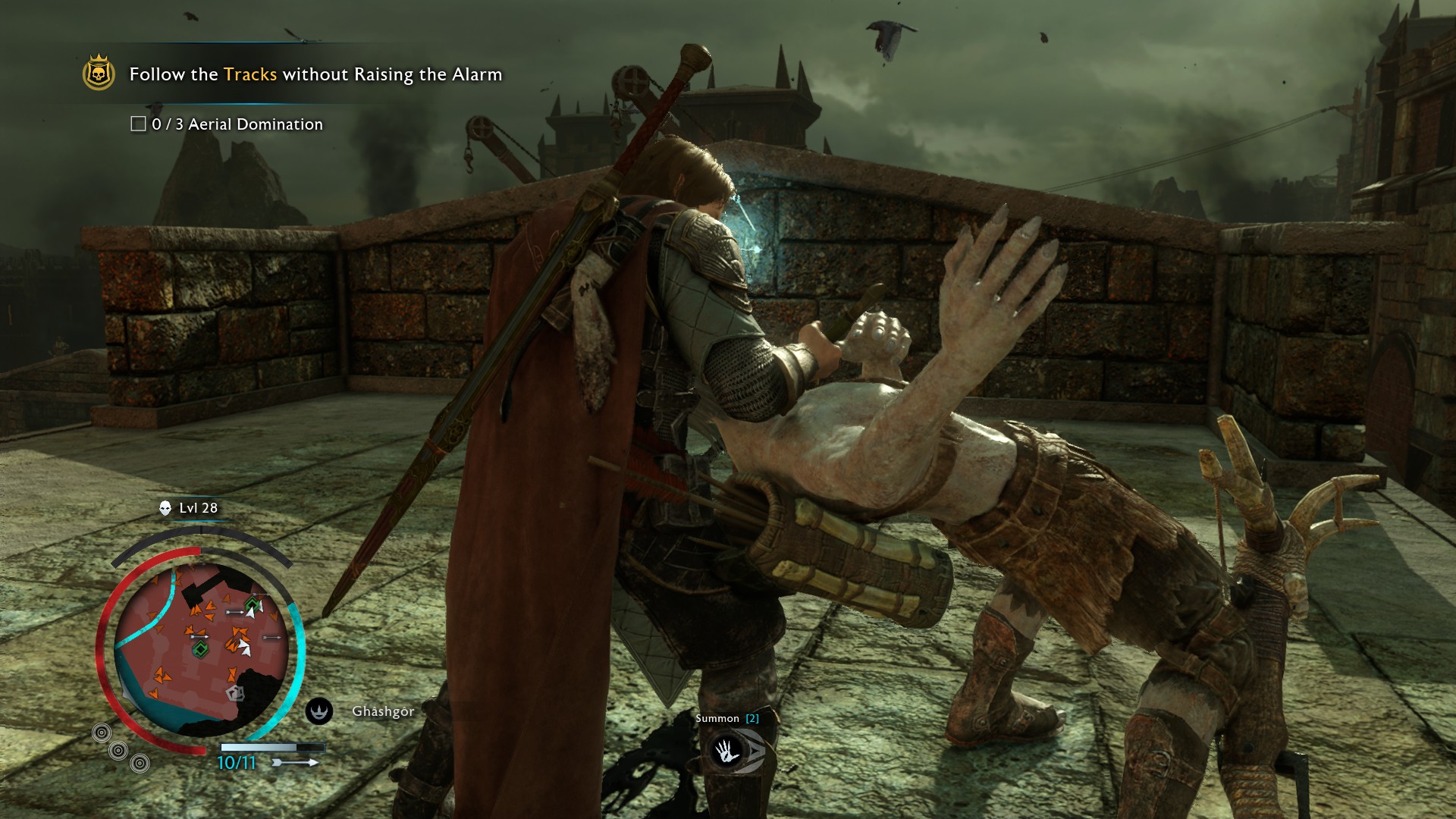
It's a big dollop of messy nonsense, and the game hasn't even started yet. Having broken the defining concept of The Lord of the Rings and turned a spider into a sex object, Shadow of War packs you off to the Gondorian city of Minas Ithil, which is on the fringes of Mordor and about to fall to the Orcs. Here you're tasked with retrieving the Palantir, one of the fiction's seeing-stones also coveted by Sauron. At the same time, you need to help save the city from the grasping tendrils of the Witch-king and the other eight Ringwraiths.
At this point the Nemesis rears its head. Here, the orcs are organised in a combative political structure where named orc captains are overseen by a small cabal of warchiefs. The orcs are constantly fighting for supremacy and dominance, and you can use this to your advantage, working your way through the ranks like a particularly stabby social climber. Initially it seems like you'll need to kill all the Warchiefs to save the city, thus lending a strong sense of agency to the player while reintroducing them to the basic mechanics.
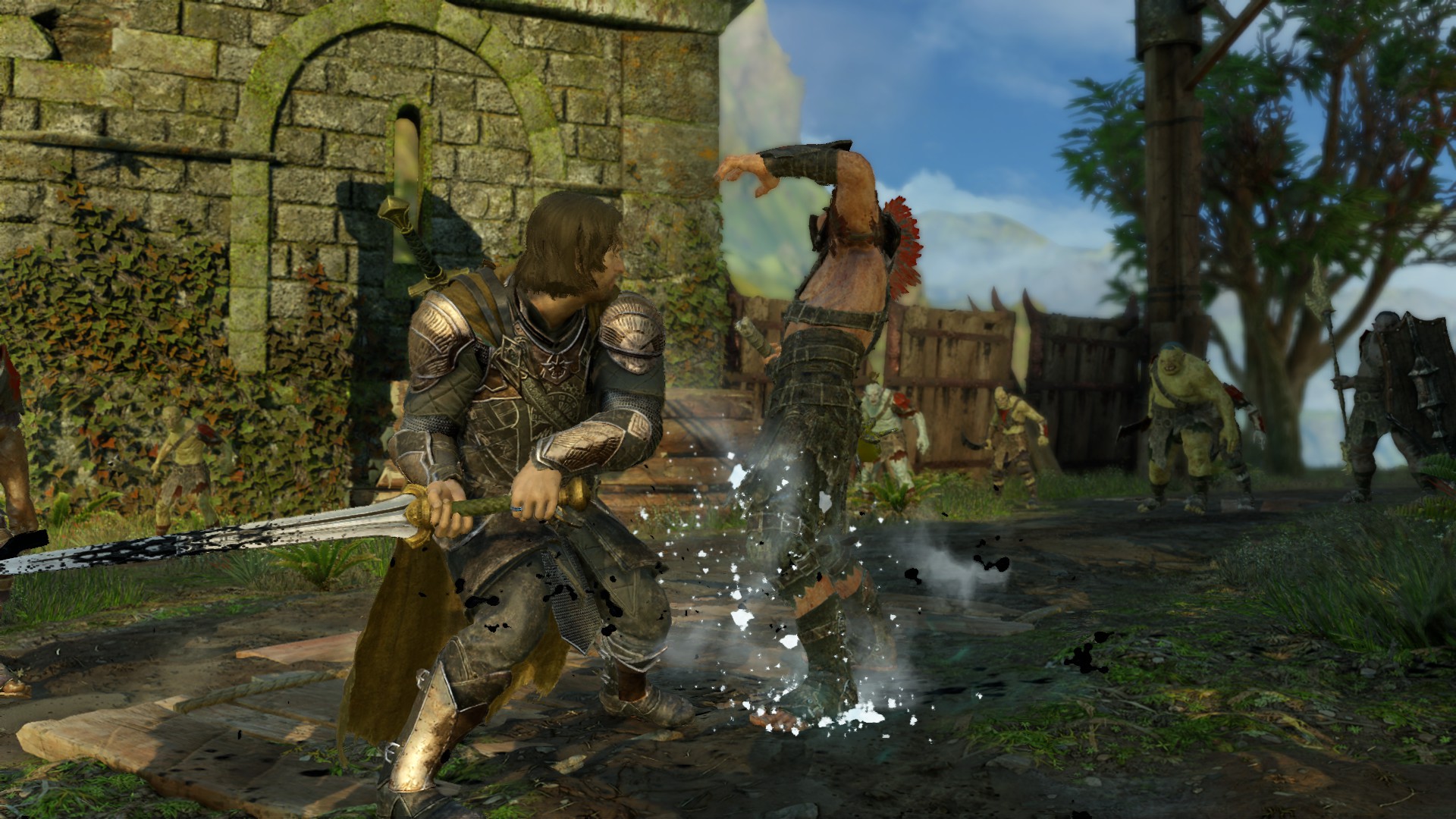
As it turns out, the system has virtually no bearing on the entire first act. Instead the fate of the city is told through story missions which revolve around a bunch of cardboard cutout Gondorian resistance fighters, including Devout yet Possessive Father, Strong and Independent Daughter, and Black Sidekick. The whole story arc is a meandering, humourless endurance test that exists solely to culminate in a MAJOR EVENT that ties into the back-story of the films. For all the impact this has, the same effect could have been achieved with an introductory cutscene.
Part of the problem is that alongside the Nemesis system, there's so much else the game needs to teach you. The basic mechanics include climbing, free-running, Batman-style counter-combat, stealth, and archery. On top of these is a skill-tree that looks like it's been growing for a thousand years, a new Diablo-esque loot system that lets you upgrade you weapons and armour, and a whole bunch of side-missions and activities from climbing towers to uncovering hidden elven Barrows. There's even an upgrade system for the loot-system. It's bonkers.
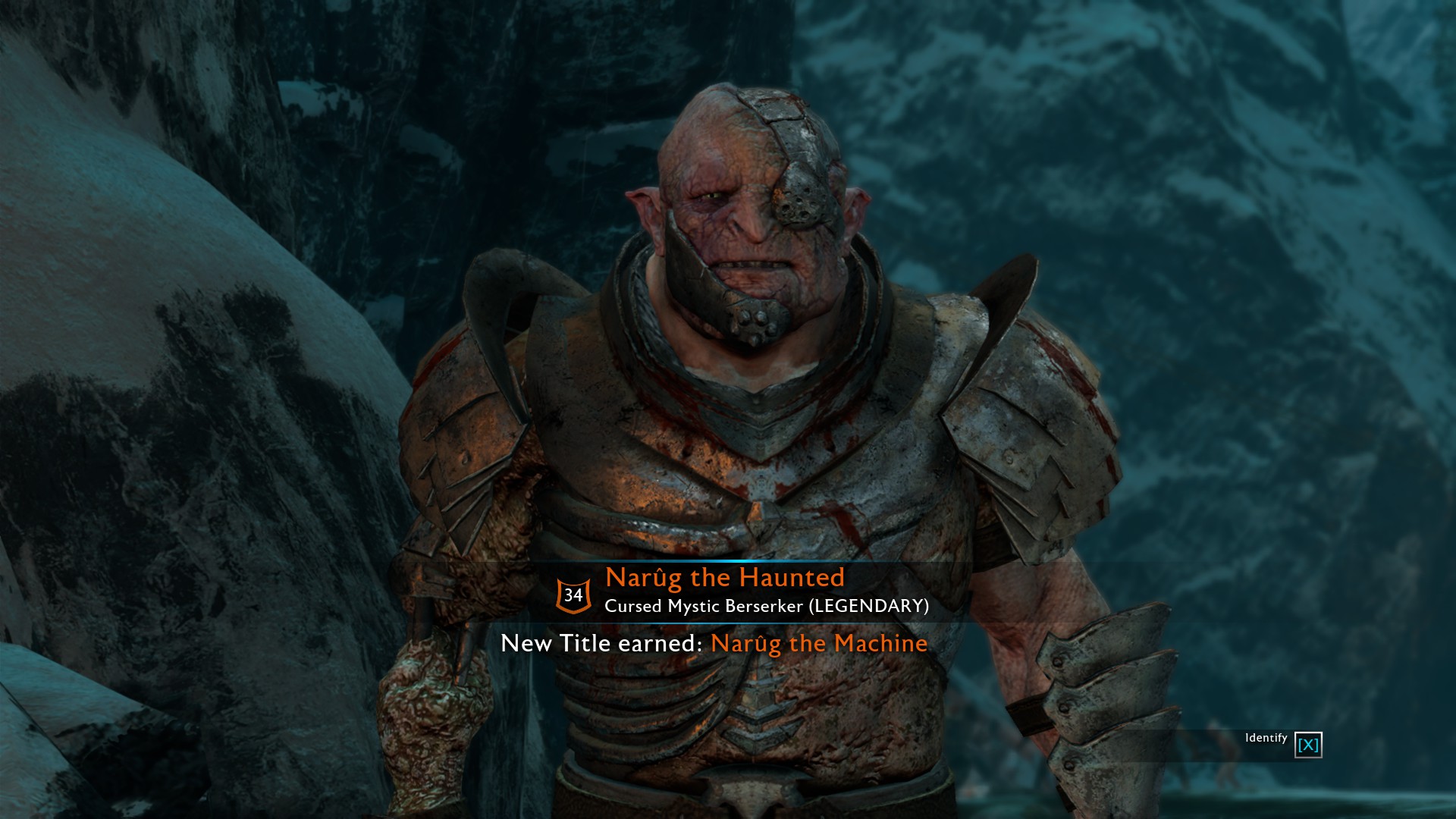
If I sound like I'm down on Shadow of War, that's not the case. I simply hate how it starts, while the presence of so much extraneous clutter only serves to obscure the good stuff. Not all of the features I've mentioned in the above paragraph are necessarily bad, though. The counter-based combat remains excellent. It's a little less sharp to start with, but once you get the execution and lethal-counter upgrades, Talion becomes delightfully deadly. Some of the other abilities in the skill tree are lots of fun too, like the ability to chain-stealth kills using Celebrimbor, or the ability to summon a pet Caragor or Graug (big rideable monsters) into battle.
It's also worth noting that, although Shadow of War borrows a lot from other open-world games, it blends many of these elements together well. It's so easy to climb a tower, sneakily kill the archer patrolling at its summit, spot the orc you've targeted, and then shoot the campfire he's standing next to with an explosive arrow. Indeed, Shadow of War remains a better assassination game than Assassin's Creed, able to shift between stealth, movement, and combat effortlessly.
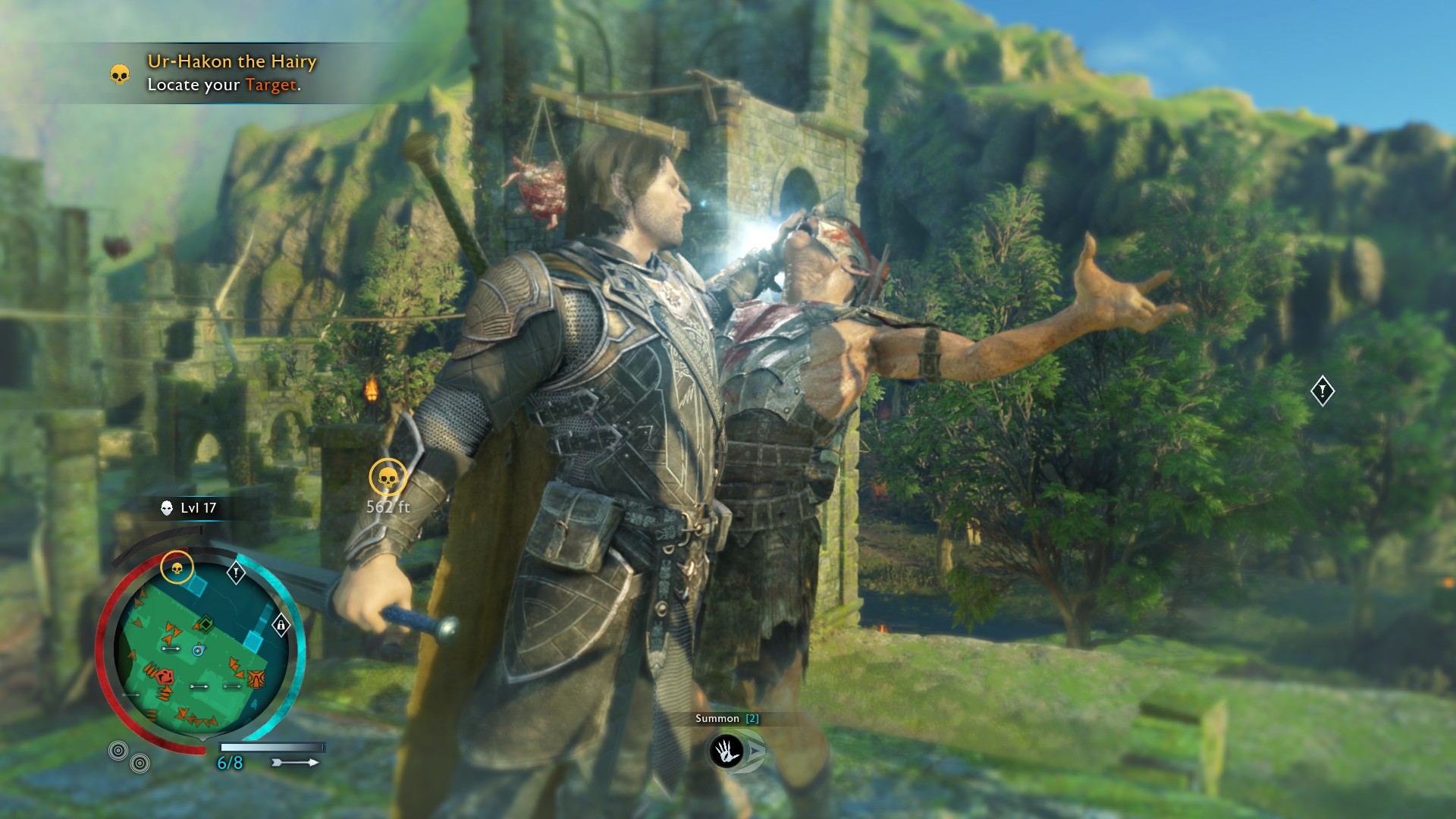
Once you finally, finally complete the first act and move into the second, Shadow of War improves drastically. The Nemesis system receives its cue, and suddenly you go from chasing down story missions to actually playing with the game Monolith has developed. The main new feature of the Nemesis system is Fortresses. Each region you explore in Shadow of War is dominated by an orc fortress, which is controlled by an Overlord and defended by up to six Warchiefs. To conquer the region, you must besiege the fortress and kill the Overlord.
Before you can attack the fortress, however, you need to build an army by dominating orc captains and turning them to your side. In theory, you could attack the fortress right away, but to stand a reasonable chance of winning, it's a good idea to take out at least a few of the defending warchiefs. This in itself involves a fair bit of planning, as the warchiefs are often guarded by several lower-ranking captains.
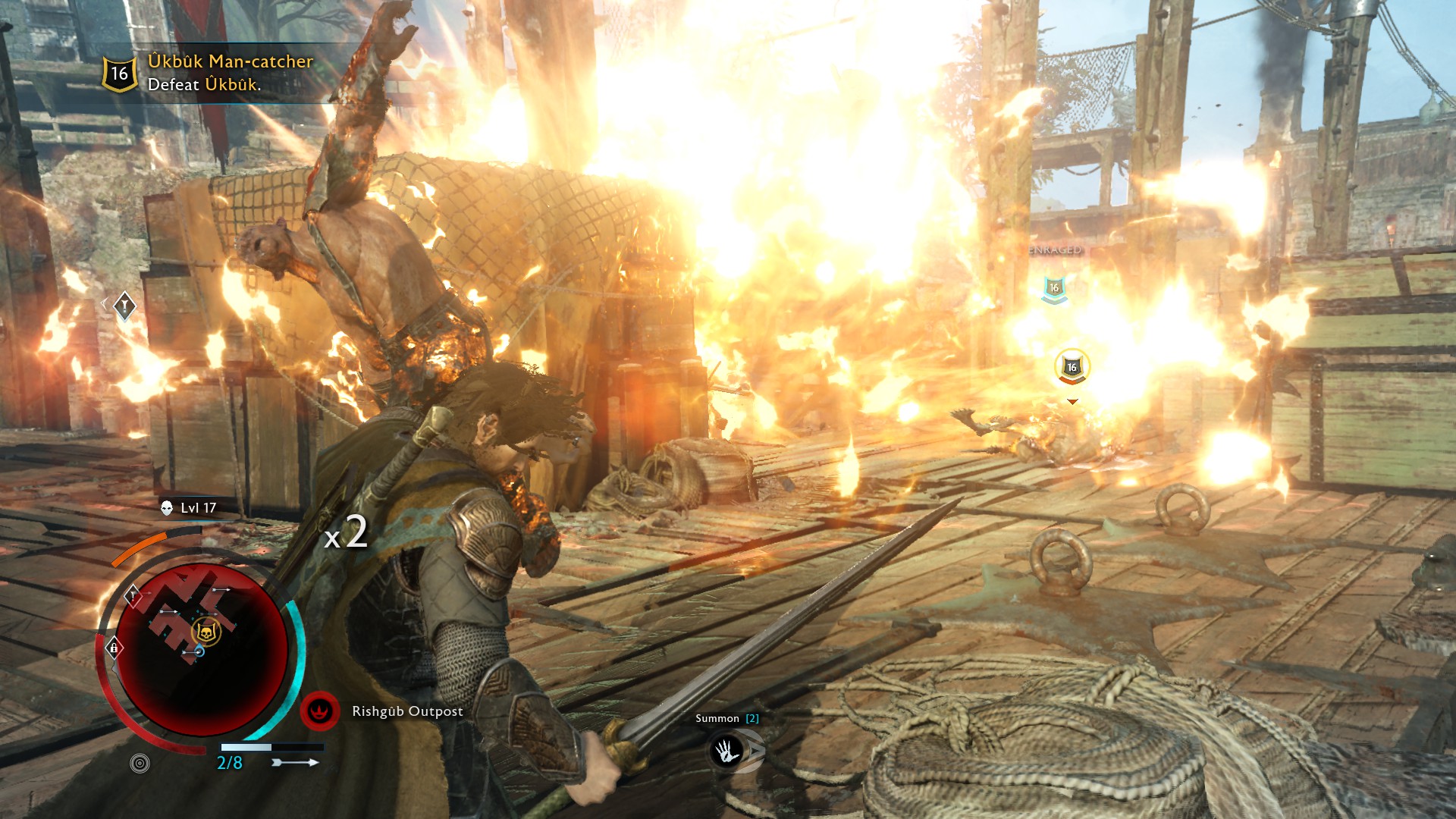
What results is this wonderfully layered mechanical structure which you can tackle however you please. You could attack the fortress head on and buy army upgrades like military graugs or siege beasts to bolster your forces. Or you could enact a campaign of assassination and intrigue, dominating Warchief bodyguards and turning them into spies, who will then attack their warchief, wounding him, and possibly killing him. All of this culminates in a titanic battle to take the fortress itself, ending in a duel with the (usually very tough) Orc Overlord. These sieges are huge and chaotic experiences with hundreds of orcs taking part. The only downside is that, if you prepare too well, the actual capturing of the fortress can go very quickly, which makes it something of an anticlimax.
The second act is further improved by how the orcs take centre stage. The Nemesis system has been expanded to give the orcs a wider range of strengths, weaknesses, and personalities. Some orcs are especially vulnerable to being poisoned, while others are fireproof or terrified of stealth attacks. One memorable orc in my game was called “Krakhorn the Survivor”, a particularly determined Orc who repeatedly returned from the dead and attempted to kill me. Unfortunately for Krakhorn, he could be instantly killed with a single shot to the head. So every couple of hours he'd jump me, make a big speech about the creative way in which he was going to murder me, take three steps forward and then fold up with an arrow poking out of his face. It would be tragic if it wasn't so funny.
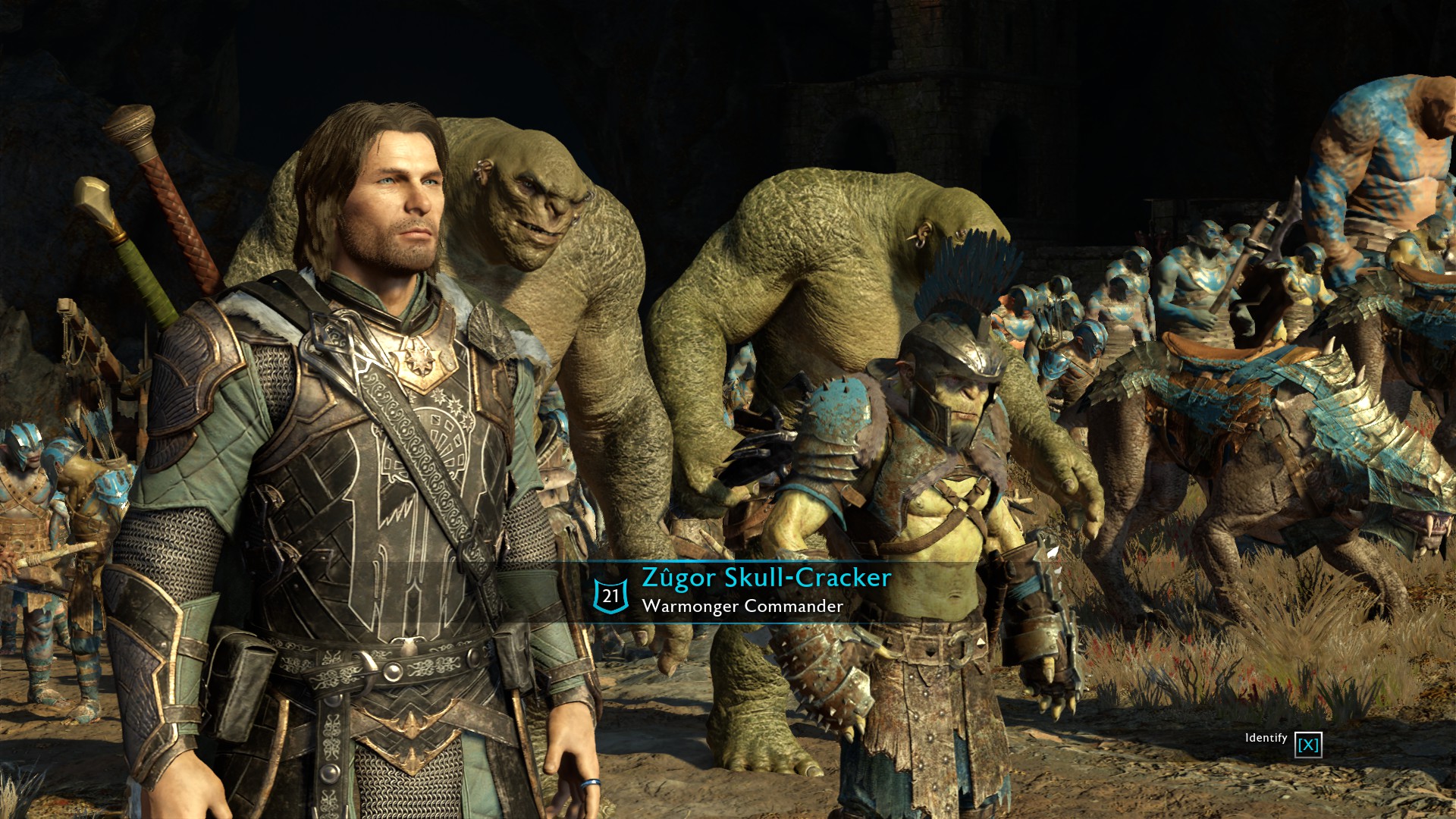
The Nemesis system is a triumph of mechanics merging with writing and design. Each orc has a unique nickname that is accompanied by a series of phrases and speeches they can make. These can be quite humorous such as the orc nicknamed “The Bard” who speaks in bad rhymes. They're not personalities as such, but these unique quirks combine with their strengths and weaknesses to form characters who are far more memorable than the core cast surrounding the plot. When Shelob steals your ring in the introduction, it has almost no impact. But when some random orc gets the better of you in battle, then becomes promoted to Captain and nicknamed “Ruk the Tark Slayer”, it motivates you to action in a way that Shelob or the Witch-king or Sauron never do. Sod the fate of Middle-Earth, I'm off to give Ruk a piece of my mind (and sword).
I wonder if Monolith (or perhaps Warner Bros.) understands what it's got on its hands here. Because when Shadow of War comes together, it's one of the most entertaining and surprising open-world games around. If the whole game was dedicated toward that system, rather than obscuring it with a story that has little connection to it and a bunch of subsidiary systems that only serve to obscure it, you'd be looking at one of the best open-world adventures around. As it stands, Shadow of War's excellence is dampened by the fact that it's too concerned with trying to be all things to all people rather than doing one thing well.



MSI MPG Velox 100R Chassis Review
October 14 2021 | 15:04

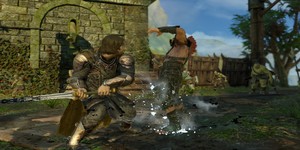







Want to comment? Please log in.